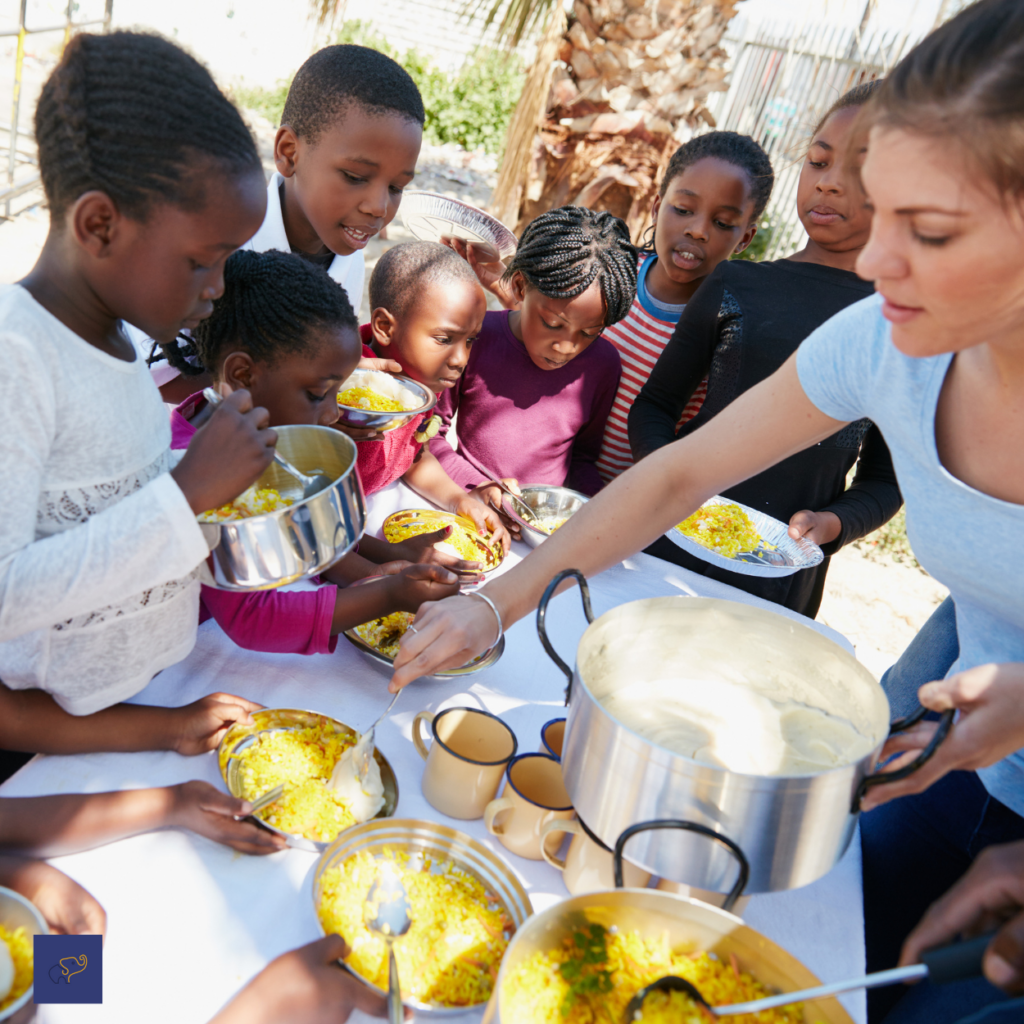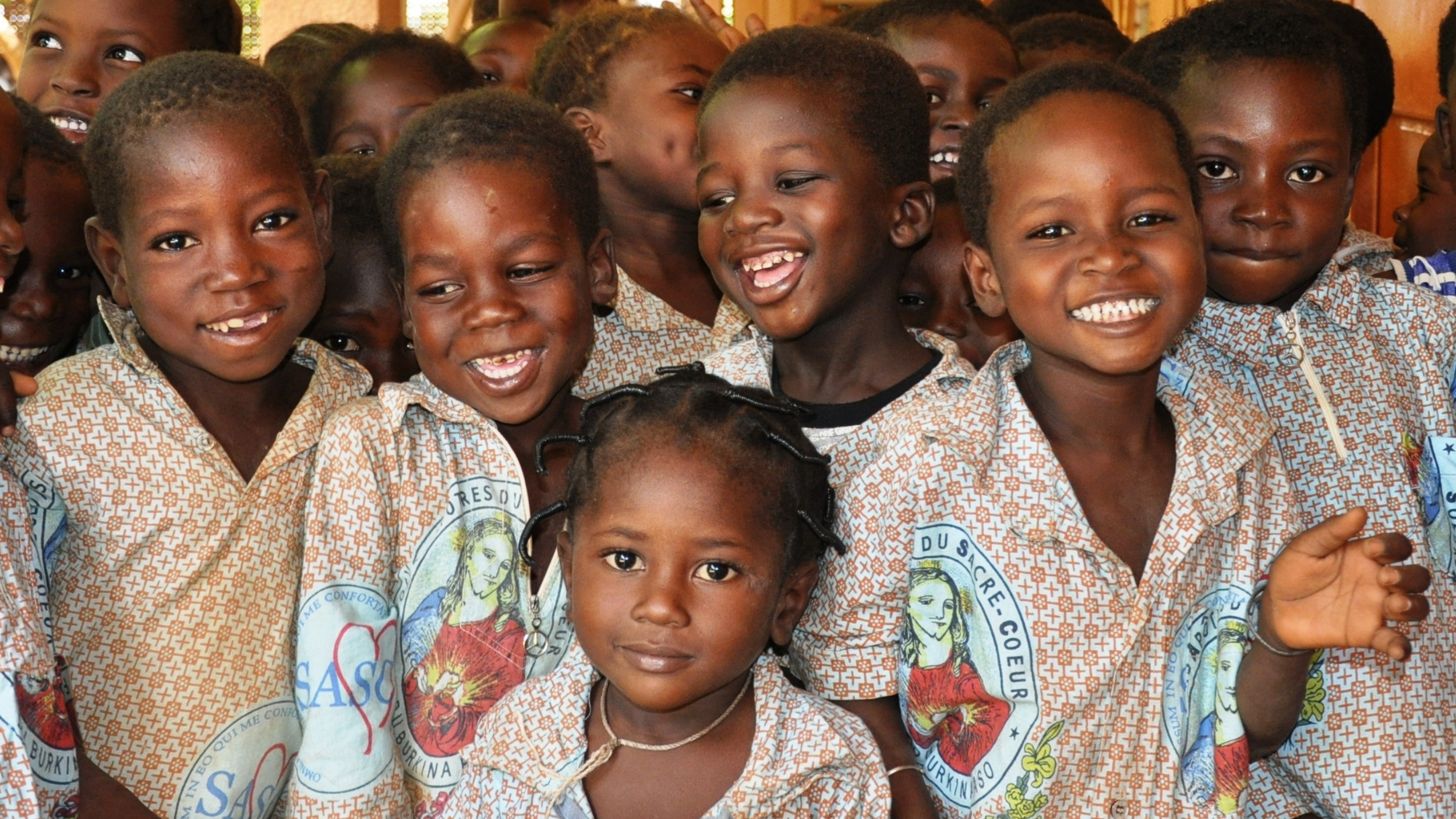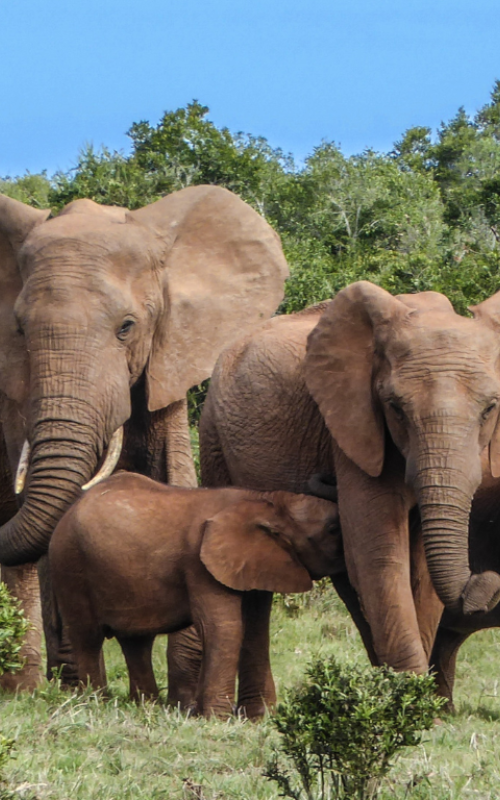– WORK WITH Animals
Three-Week Volunteer Program with Our Children’s home Partners.
This three-week program is for animal enthusiasts who want to contribute meaningfully to wildlife conservation in different parts of Zimbabwe. Volunteers will immerse themselves in animal care, assist with sanctuary operations, and experience local culture with breaks to unwind and connect with fellow participants.

Duration:
12 days
Locations:
Harare, Shamva, Hwange, Kariba, Victoria Falls.
Minimum Age:
18+
Experience:
None
Who its For:
Individuals passionate about kids.
Details
The Experience
Hands-on animal care and enrichment activities.Opportunities to work with experienced sanctuary staff and veterinarians.Cultural immersion through a traditional braai and optional visit to Harare.Habitat restoration and community conservation engagement.Reflection sessions to connect with like-minded volunteers and leave a lasting legacy.
Includes
Accommodation in shared rooms.
Meals: Breakfast, lunch, and dinner daily.
Transfers: All local transfers as stipulated in the program
Organized volunteer activities, cultural experiences, and recreational excursions.
A certificate of completion and recommendation letters from your supervisors.
In-country coordination and 24/7 support from local staff.
Excludes
International and local flights.
Visa fees and travel insurance.
Personal expenses (souvenirs, snacks, and activities).
Medical expenses and personal medications.
Farewell Dinner meal (At a restaurant.)
Additional meals or drinks outside the program-provided options.
Itinerary
day
01
Arrival in Harare, Orientation and Welcome Dinner
All Day
On your arrival, get time to rest, re-calibrate
your clock, get acclimated to your environment
and enjoy a welcome dinner at your
Guesthouse.
day
02
Orientation: Training and Awareness
All Day
Learn what your role will entail, including the historical and ecological background of the region you are in. Get acquainted with your team members, supervisors and the community.
day
03
–
07
Volunteer Program
07:00am – 04:00pm
Engage in your allocated tasks, attend workshops, and participate in community outreach. Intermittent breaks included.
day
08
Cultural Excursion
All Day
Enjoy a day of sight-seeing, bird watching, and experiencing the natural beauty of the park
day
09
Rest Day
All Day
A free day to create your own adventures, or wind down before another week of volunteer activities.
day
10
–
15
Volunteer Program Week 2
07:00am – 04:00pm
Engage in your allocated tasks, attend workshops, and participate in community outreach. Intermittent breaks included.
day
16
–
20
Inyangani Trip
All Day
Visit a rural children’s home in a historical town stuck in time. Indulge in hiking, ziplining, waterfalls, horseriding, swimming, evening braais, and a little history in the heart of the Manicaland Mountains.
day
21
Gift Shopping and Farewell Dinner
All Day
City Excursion for gift shopping, then farewell dinner at a restaurant.
day
22
Departure
All Day
Prepare for your journey home, taking with you unforgettable memories and newfound knowledge.

Frequently Asked Questions
What documents should I bring?
Most travelers need a visa to enter Zimbabwe. Many nationalities can obtain a visa on arrival at the airport or border posts. The visa fee was $75 (USD) in 2024, depending on your nationality. It is recommended to check the visa requirements for your specific country before traveling.
Travel insurance is also compulsory. It should cover health, emergency evacuation, trip cancellations, and personal belongings. Ensure the insurance includes coverage for any volunteer activities or excursions you plan to do.
What travel items are essential?
Zimbabwe uses Type D and Type G plugs. The standard voltage is 220-240V, so bring a universal adapter if needed. You will find a power bank a handy tool, and a secure, well-made and lightweight day bag to carry your portable items.
A mini first-aid kit, any personal medication, and insect repellent will be quite handy especially when out on your own. and a mini fan for extra sweaty afternoons.
What kind of clothing should I have?
Pack lightweight, breathable clothing for warm weather, long-sleeved shirts, hats, and sunglasses for sun protection.
Comfortable walking and trekking shoes are essential for exploring, and a warm layer is recommended for cooler evenings, especially in areas like Inyanga where temperatures can be as a low as 8 degrees Celcius.
For ladies, modest, breathable sun dresses are recommended for church visits, and smart casual collared shirts and breathable ankle length pants for men.
Where can I go shopping?
All major cities have a variety of stores, with Harare having a couple of malls and marketplaces to shop for souvenirs, gifts, etc.
Credit cards are accepted in major cities and at some hotels and restaurants. However, smaller vendors and rural areas often require cash, so it’s best to carry U.S. dollars.
It is more affordable and practical to withdraw cash for the day, and use cash, as swipe machines may not always be present in all commercial areas.
How do I stay connected?
We recommend local SIM cards from Econet or TelOne, which are usually around $1USD. Ensure your phone is unlocked to use a local SIM. Wi-Fi is available in some restaurants, but not all public areas, so purchasing a data package is recommended.
What transport options are available?
Recommended transportation options include private taxis, Indrive, Bolt and private car rentals. For intercity travel, buses and domestic flights are available. Ensure any transportation is arranged with reputable providers for safety.
We do provide a directory of recommended transporters from all options mentioned above, and we will provide all transportation within the scope of our tour packages.
Is Zimbabwe safe for tourists?
Zimbabwe is generally considered safe for tourists. However, like in any country, it is important to exercise caution, avoid displaying valuables, and stay informed about local conditions. For secure travelling, please use our recommended transport options.
What cultural norms should I be aware of?
Greeting people warmly with a handshake is customary, and the elderly are often addressed formally unless they state otherwise. (Mr, Mrs…)
Dress modestly, especially in rural areas or when visiting places of worship. Always ask permission before taking photos of people or cultural sites. Stores are usually closed by 6pm, restaurants and public areas are usually closed by 9pm or 10pm.
This FAQ section will help you prepare for a safe and enjoyable trip to Zimbabwe!

